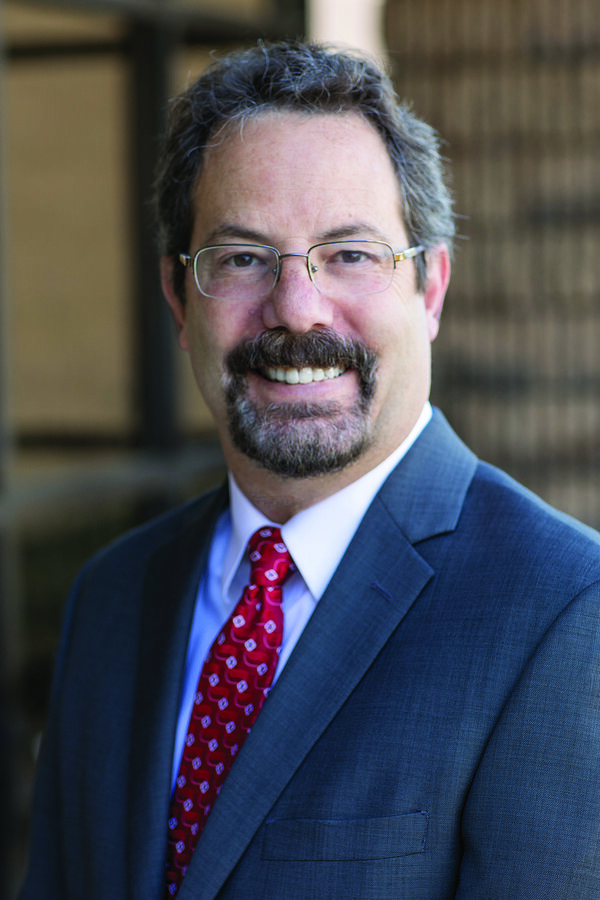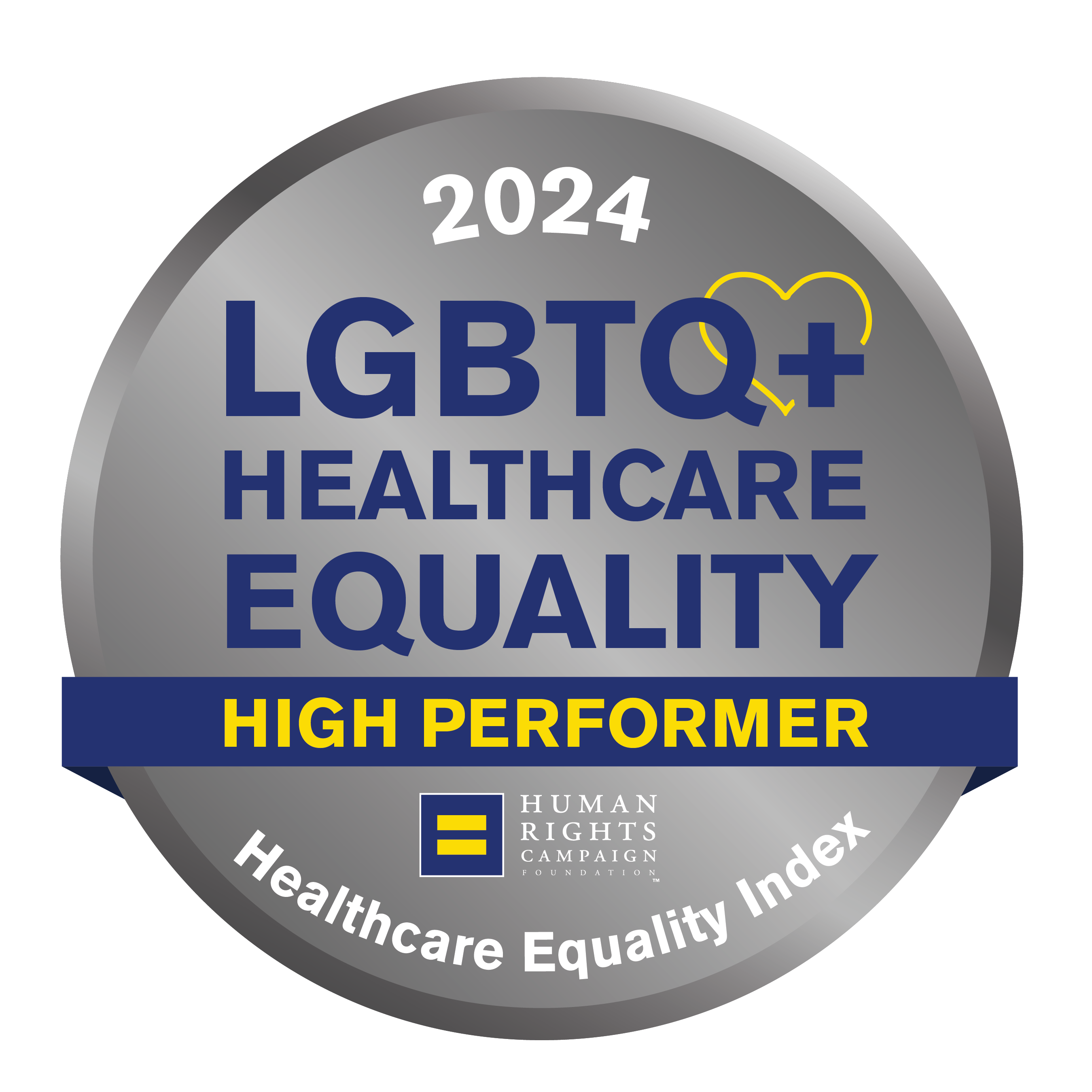Capital Health joins 462 healthcare facilities nationwide earning the “LGBTQ+ Healthcare Equality High Performer” designation
Trenton, New Jersey -- Capital Health recently announced their “LGBTQ+ Healthcare Equality High Performer” designation from the Human Rights Campaign Foundation (HRC). The designation was awarded in the 16th iteration of HRC’s Healthcare Equality Index (HEI), released today. A record 1,065 healthcare facilities actively participated in the HEI 2024 survey and scoring process. Of those participants, 462 received the “LGBTQ+ Healthcare Equality High Performer” designation.
 “Capital Health’s mission is to improve the health and well-being of the populations we serve in urban and suburban communities, and that means everyone in those communities,” said Dr. Eric I. Schwartz, vice president of Community Health and Transformation and executive director of Capital Health’s Institute for Urban Care. “Our designation as an LGBTQ Healthcare Equality High Performer demonstrates our ongoing commitment to upholding a model of equality and respect for our LGBTQ+ patients, visitors, and staff and providing a safe and welcoming environment throughout our organization.”
“Capital Health’s mission is to improve the health and well-being of the populations we serve in urban and suburban communities, and that means everyone in those communities,” said Dr. Eric I. Schwartz, vice president of Community Health and Transformation and executive director of Capital Health’s Institute for Urban Care. “Our designation as an LGBTQ Healthcare Equality High Performer demonstrates our ongoing commitment to upholding a model of equality and respect for our LGBTQ+ patients, visitors, and staff and providing a safe and welcoming environment throughout our organization.”
According to the World Health Organization, health inequities are “avoidable inequalities in health between groups of people.” Recognizing the many factors that cause health inequity, Capital Health Institute for Urban Care works to improve medical care while overcoming the complex social determinants of health in order to positively affect outcomes. To accomplish this, the Institute works with a robust network of community partners. By combining strengths, Capital Health and its partners are able to engage our neighbors, effectively use data, and develop innovative, scalable, and reproducible programs that go beyond the scope of traditional care and allow us to improve the health and well-being of residents in Trenton and the greater Mercer, Burlington and Bucks county region. To learn more, visit capitalhealth.org/urbancare.
 “As anti-LGBTQ+ extremists look to strip away healthcare access at every turn, LGBTQ+ people and their loved ones are looking for healthcare providers to offer and champion fully inclusive services, The Healthcare Equality Index is helping people find facilities where welcoming policies and practices are the standard,” said Kelley Robinson, president of the Human Rights Campaign. “We know that LGBTQ+ people – especially our trans family – continue to face discrimination in the doctor’s office. No one should have to put their health on the backburner for fear of mistreatment in a health care facility or by their doctor.”
“As anti-LGBTQ+ extremists look to strip away healthcare access at every turn, LGBTQ+ people and their loved ones are looking for healthcare providers to offer and champion fully inclusive services, The Healthcare Equality Index is helping people find facilities where welcoming policies and practices are the standard,” said Kelley Robinson, president of the Human Rights Campaign. “We know that LGBTQ+ people – especially our trans family – continue to face discrimination in the doctor’s office. No one should have to put their health on the backburner for fear of mistreatment in a health care facility or by their doctor.”
Key highlights from the report include:
- Targeted Health Disparities Reduction Plans: Encouragingly, 71% have an official plan for reducing health disparities that specifically includes LGBTQ+ patients in addition to race, ethnicity, and linguistic concerns.
- Work to Be Done: Only 27% have an externally promoted specific program to provide patient navigation or advocacy services to transgender patients.
- Bias Elimination and Welcoming Interactions: Just over half (53%) have a policy or policies that specifically outline procedures and practices aimed at eliminating bias and insensitivity, and ensuring appropriate, welcoming interactions with transgender patients.
- EHR SOGI Data: Major increases are seen in the number of health care facilities collecting sexual orientation and gender identity-related data in their Electronic Health Records systems. Seven of the eight relevant data points had double-digit increases.
- Pronouns in Electronic Health Records: The ability to collect and display a patient’s pronouns rose from 44% to 74%. This is an important tool to help prevent misgendering a patient.
- FMLA-Equivalent Benefits: 38% offer FMLA-equivalent benefits that allow employees to take family and medical leave to care for same-sex partners as well as the children of a same-sex partner, regardless of biological or adoptive status – this is up from 34% in 2022.
- Comprehensive Benefits for Domestic Partners: 41% provide medical and comprehensive health benefits to domestic partners of benefits-eligible employees up from 34% in 2022. This is the first increase in this measure since the 2015 Obergefell decision on same-sex marriage.
- Employee Resource Groups: 72% have an officially recognized LGBTQ+ employee resource group.
- Community Engagement and Support: 92% took part in or supported one or more LGBTQ+ related events or initiatives in their service area.
This year’s HEI comes as LGBTQ+ adults are twice as likely as non-LGBTQ+ adults to be “treated unfairly or with disrespect by a doctor or healthcare provider” in the last three years, according to the Kaiser Family Foundation. The impact of anti-LGBTQ+ legislation combined with a history of discrimination in healthcare settings has the potential to cause even more LGBTQ+ people to delay or avoid seeking healthcare, which makes the HEI even more salient for those looking to find LGBTQ+-inclusive care.
The Human Rights Campaign Foundation is the educational arm of the Human Rights Campaign (HRC), America's largest civil rights organization working to achieve equality for lesbian, gay, bisexual, transgender and queer (LGBTQ+) people. Through its programs, the HRC Foundation seeks to make transformational change in the everyday lives of LGBTQ+ people, shedding light on inequity and deepening the public’s understanding of LGBTQ+ issues, with a clear focus on advancing transgender and racial justice. Its work has transformed the landscape for more than 15 million workers, 11 million students, 1 million clients in the adoption and foster care system and so much more. The HRC Foundation provides direct consultation and technical assistance to institutions and communities, driving the advancement of inclusive policies and practices; it builds the capacity of future leaders and allies through fellowship and training programs; and, with the firm belief that we are stronger working together, it forges partnerships with advocates in the U.S. and around the globe to increase our impact and shape the future of our work.